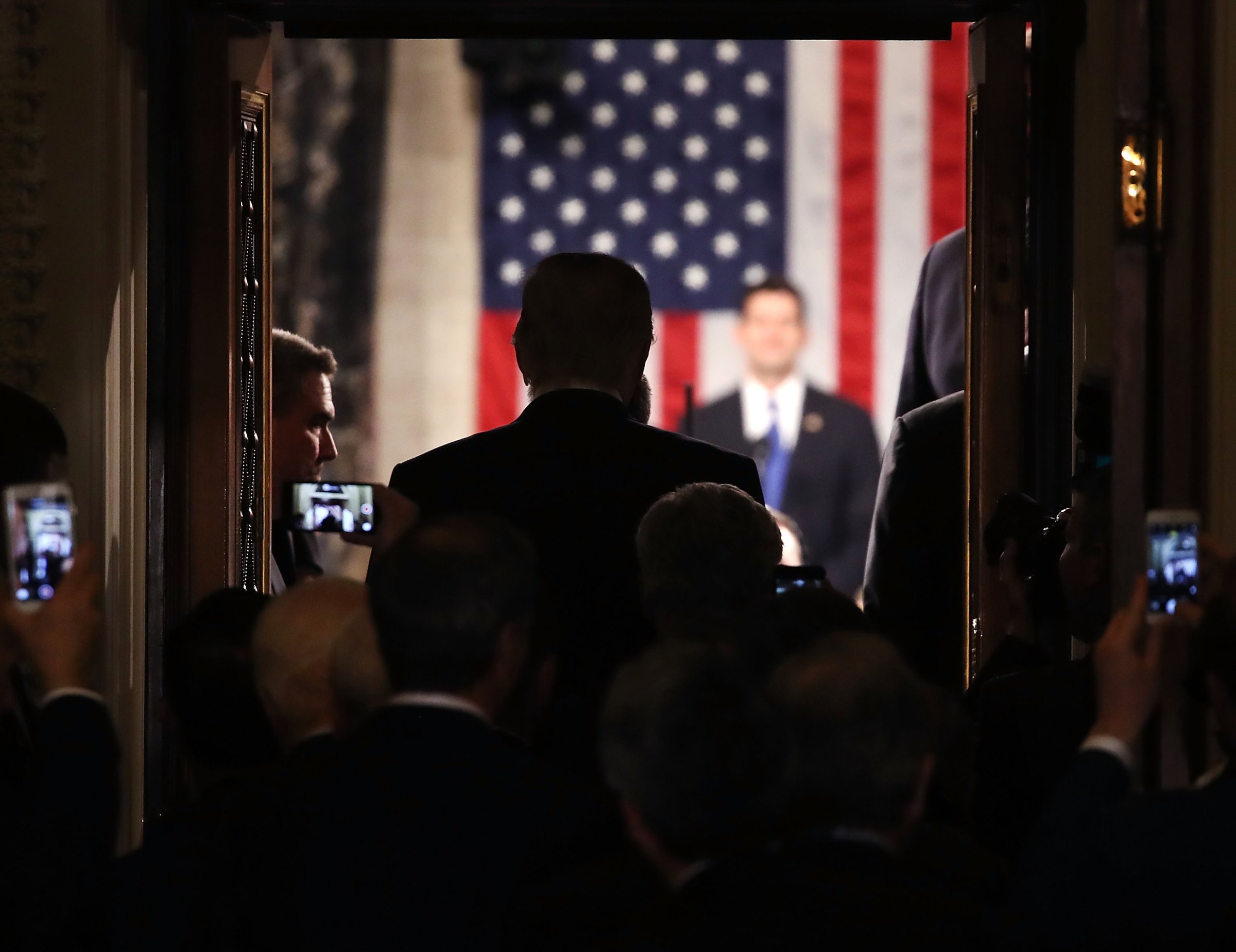
As President Donald Trump prepares to give his first State of the Union Address on Tuesday, Republicans might want to check in on the state of their own party as we inch closer to the fall midterm elections.
On paper, the GOP remains in the strongest position it’s been ahead of the elections since before the Obama Administration. The GOP controls the White House, both chambers of Congress and has a conservative majority on the Supreme Court. There are more than two times as many Republican governors as Democrats to boot.
But there are warning signs that the party’s time may be coming to an end ahead of the midterm elections in November.
The latest sign came Monday, as New Jersey Rep. Rodney Frelinghuysen announced he would retire at the end of the year. That’s noteworthy for a few reasons: 1) He just became the powerful chair of the Appropriations committee last year. 2) He’s the eighth chair of a House committee to forgo a re-election campaign this year. 3) He represents a swing district that may be tough for Republicans to hold in an open election. 4) He’s a member of a political dynasty that stretches back to the Continental Congress.
If a politician like Frelinghuysen has decided he can’t make a go of it under the party banner 10 months out from the midterm election, that’s a bad sign. And he’s not alone. Republican Sens. Bob Corker and Jeff Flake have called it quits, as has long-serving Utah Sen. Orrin Hatch. On the House side, 23 Republicans have opted to retire or have already resigned — more than three times the number of Democrats.
While Republicans in Congress are eyeing the exits, a growing number of Democrats are looking for a way in. Democratic recruitment continues to outpace Republicans, especially among the kind of candidates with a strong personal story that both parties love to put forward. Candidates like Amy McGrath, a retired Marine lieutenant colonel whose first online video went viral last year.
Republicans also face an enthusiasm gap. Midterm elections are typically difficult for the president’s party, but they’re even more so when the president is unpopular. And Trump finished his first year in office with polling that shows he may be the least popular president in recorded history.
Polls also show Democrats with a narrow five-point advantage on the generic congressional ballot — how people answer when asked which party they would like to see win, rather than when they are asked about specific candidates — but that margin triples among the voters who say they are most enthusiastic about going to the polls to vote in the midterm elections this fall.
Amid these powerful forces, some Republicans are maintaining a positive outlook. At the Koch Brothers annual retreat this weekend, conservative donors pinned their hopes on grassroots mobilization and a generally healthy economic outlook ahead of midterm elections. The map of Senate seats up this fall also leans in Republicans’ favor.
But the window of opportunity here for both parties is rapidly closing. The incumbents who’ve opted to retire, the upstarts who’ve decide to jump in and the donors who’ve decide to sit the whole thing out will soon be decided. The results may not yet be known, but when the dust settles this fall for the midterm elections, it may become clear that they were preordained by this point.
(Disclosure: Time Inc., TIME’s parent company, has agreed to be acquired by Meredith Corp. in a deal partially financed by Koch Equity Development, a subsidiary of Koch Industries Inc.)
More Must-Reads from TIME
- Why Trump’s Message Worked on Latino Men
- What Trump’s Win Could Mean for Housing
- The 100 Must-Read Books of 2024
- Sleep Doctors Share the 1 Tip That’s Changed Their Lives
- Column: Let’s Bring Back Romance
- What It’s Like to Have Long COVID As a Kid
- FX’s Say Nothing Is the Must-Watch Political Thriller of 2024
- Merle Bombardieri Is Helping People Make the Baby Decision
Contact us at letters@time.com